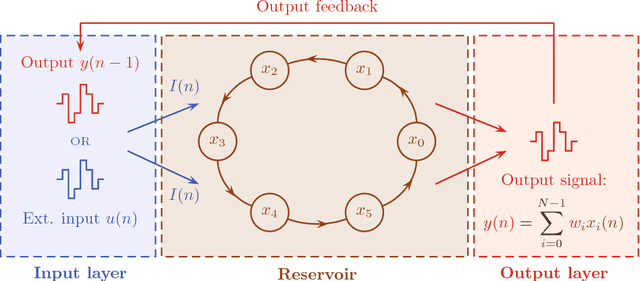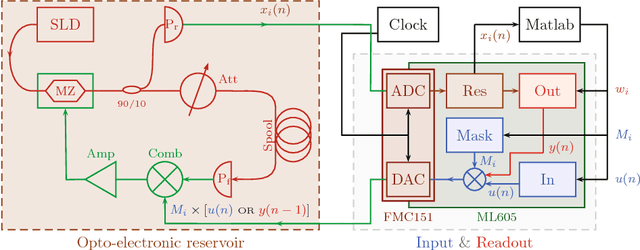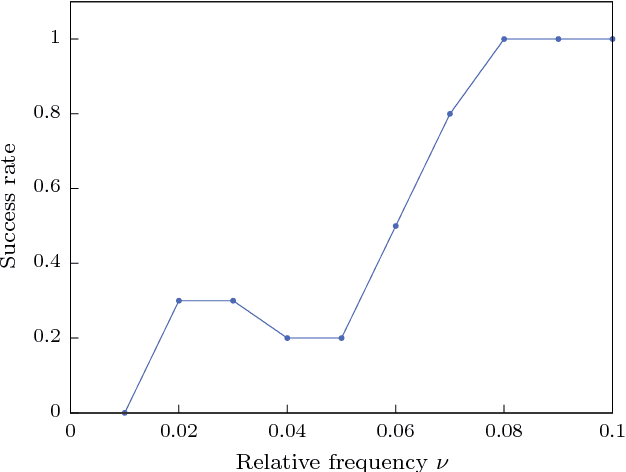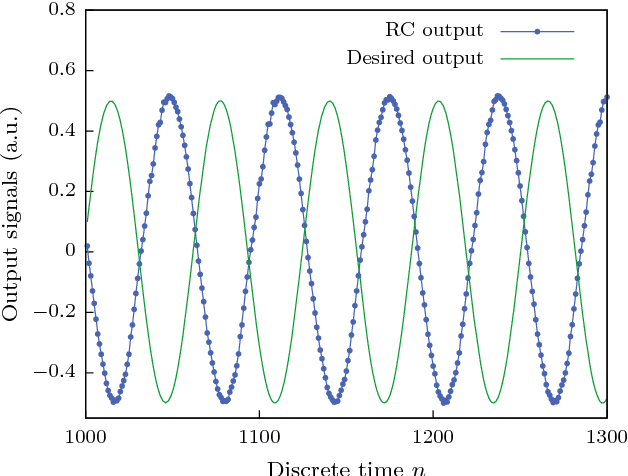Random pattern and frequency generation using a photonic reservoir computer with output feedback
Paper and Code
Dec 19, 2020



Reservoir computing is a bio-inspired computing paradigm for processing time dependent signals. The performance of its analogue implementations matches other digital algorithms on a series of benchmark tasks. Their potential can be further increased by feeding the output signal back into the reservoir, which would allow to apply the algorithm to time series generation. This requires, in principle, implementing a sufficiently fast readout layer for real-time output computation. Here we achieve this with a digital output layer driven by a FPGA chip. We demonstrate the first opto-electronic reservoir computer with output feedback and test it on two examples of time series generation tasks: frequency and random pattern generation. We obtain very good results on the first task, similar to idealised numerical simulations. The performance on the second one, however, suffers from the experimental noise. We illustrate this point with a detailed investigation of the consequences of noise on the performance of a physical reservoir computer with output feedback. Our work thus opens new possible applications for analogue reservoir computing and brings new insights on the impact of noise on the output feedback.
 Add to Chrome
Add to Chrome Add to Firefox
Add to Firefox Add to Edge
Add to Edge